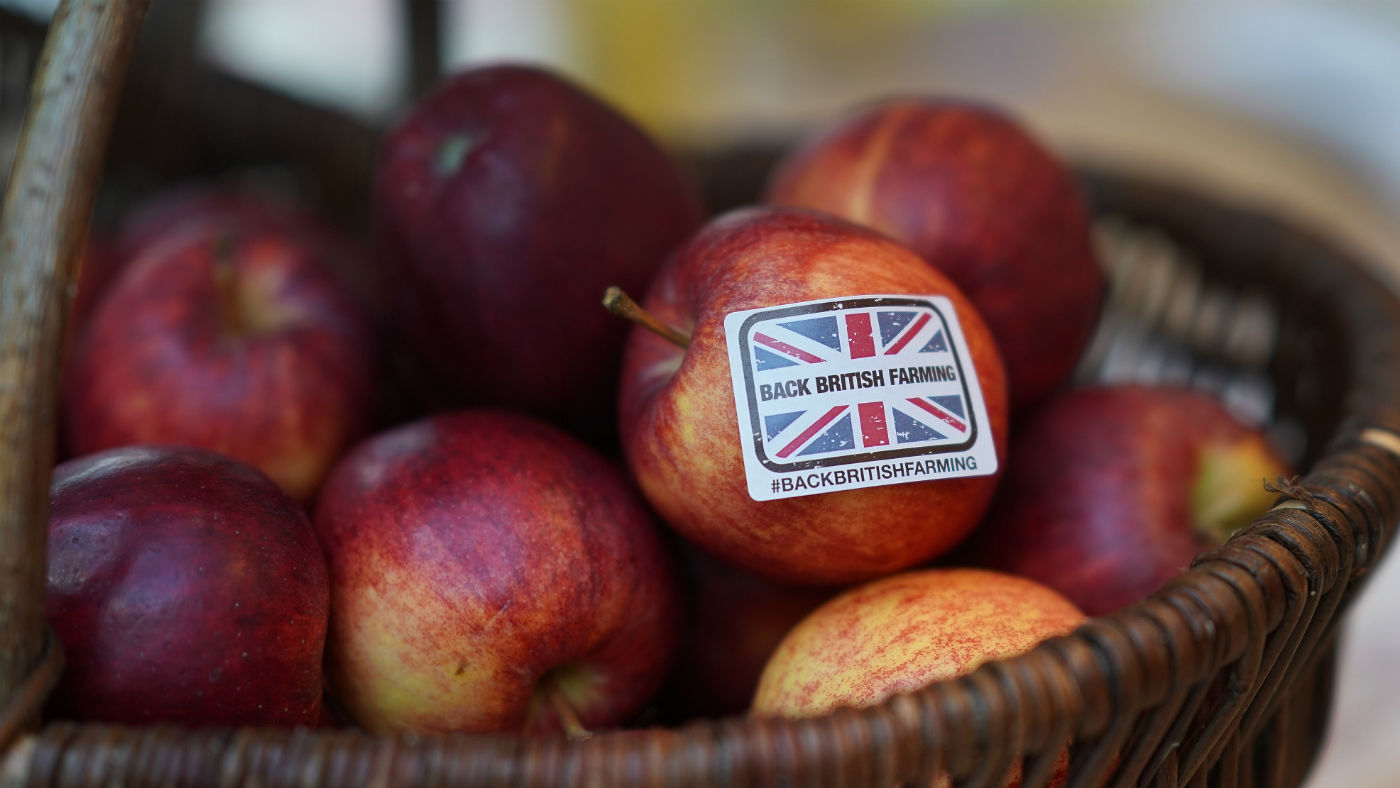Can Britain ever be food self-sufficient?
UK will run out of food in a year under no deal Brexit, says farmers union

A free daily email with the biggest news stories of the day – and the best features from TheWeek.com
You are now subscribed
Your newsletter sign-up was successful
Britain would run out of food by this time next year if it crashed out of the EU without a deal and was unable to easily import goods from overseas.
That is the stark warning from the National Farmers’ Union, which has urged the government to put food security at the top of the political agenda as it negotiates Britain’s future relationship with the EU.
NFU research has shown 7 August 2019 would be the nominal day that Britain would run out of food if it were asked to be wholly self-sufficient based on seasonal growth.
The Week
Escape your echo chamber. Get the facts behind the news, plus analysis from multiple perspectives.

Sign up for The Week's Free Newsletters
From our morning news briefing to a weekly Good News Newsletter, get the best of The Week delivered directly to your inbox.
From our morning news briefing to a weekly Good News Newsletter, get the best of The Week delivered directly to your inbox.
President of the NFU Minette Batters said the threat of a no deal, combined with the impact of “unprecedented dry and hot weather” had put self-sufficiency in the spotlight and follows alarming news that the government was putting in place contingency plans to stockpile food in the event a no deal Brexit disrupted supply lines.
Nevertheless, the figures highlight the UK’s reliance on foreign food exports and rubbishes claims British farmers could simply grow more food to make-up the shortfall.
In fact, “food security in Britain is in long-term decline” says The Guardian.
Figures from the Department for Environment, Food and Rural Affairs (Defra) reveal the UK produces 60% of what it needs to feed itself, compared with 74% 30 years ago.
A free daily email with the biggest news stories of the day – and the best features from TheWeek.com
“Changing eating habits over the past three decades have helped fuel the increasing reliance on food grown overseas,” says the Guardian “but global economics have also contributed to imbalances in foods that can be produced in the UK”.
Striking a more positive note, Batters said Brexit does offer the opportunity to redress the imbalance in Britain’s food production sector.
“And as we replace the EU’s Common Agricultural Policy, we must keep a sharp focus on what productive, progressive and profitable farm businesses need from a domestic agricultural policy”, she said.